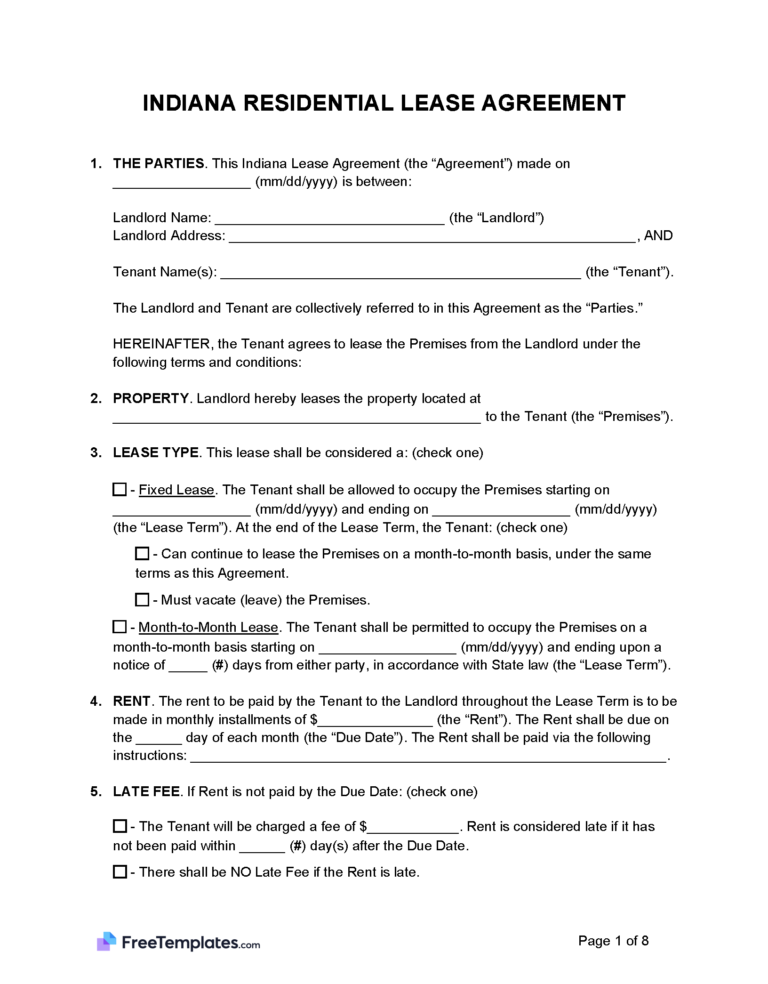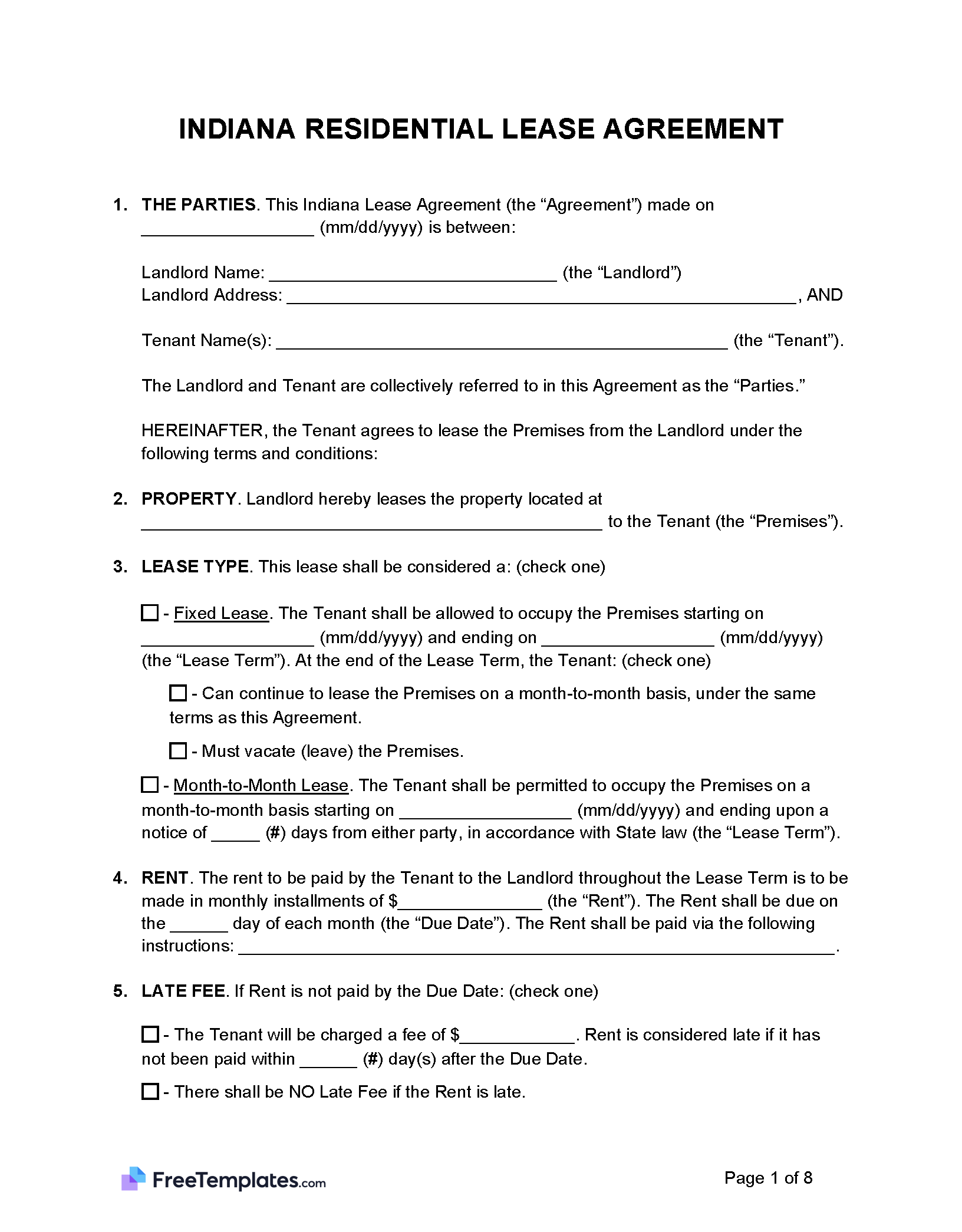By Type (6)
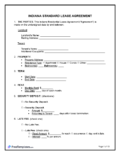 Standard Lease Agreement – A contract between a landlord and a tenant to rent a residential property for a fixed amount of time, most commonly with 12-month terms. Standard Lease Agreement – A contract between a landlord and a tenant to rent a residential property for a fixed amount of time, most commonly with 12-month terms.Download: PDF, MS Word, ODT |
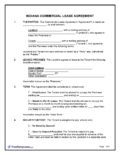 Commercial Lease Agreement – A formal arrangement for a business to rent a property from a landlord. Commercial Lease Agreement – A formal arrangement for a business to rent a property from a landlord.Download: PDF, MS Word, ODT |
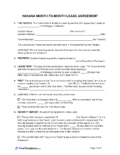 Month-to-Month Lease Agreement – An at-will, monthly tenancy between the landlord and the tenant. The contract automatically renews monthly unless the landlord or the tenant gives notice to terminate, typically with a 30-day notice. Month-to-Month Lease Agreement – An at-will, monthly tenancy between the landlord and the tenant. The contract automatically renews monthly unless the landlord or the tenant gives notice to terminate, typically with a 30-day notice.Download: PDF, MS Word, ODT |
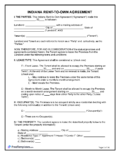 Rent-to-Own Agreement – A legally binding lease document in which the tenant can purchase the rental property at an agreed-upon date. Rent-to-Own Agreement – A legally binding lease document in which the tenant can purchase the rental property at an agreed-upon date.Download: PDF, MS Word, ODT |
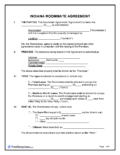 Roommate Agreement – This legal arrangement outlines the terms, conditions, and responsibilities of living together for individuals who split a residence. Roommate Agreement – This legal arrangement outlines the terms, conditions, and responsibilities of living together for individuals who split a residence.Download: PDF, MS Word, ODT |
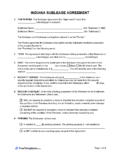 Sublease Agreement – With written permission from the landlord, this agreement allows the tenant to rent all or part of the rental unit to another tenant. The original lease agreement between the landlord and the original tenant (sublessor) remains in effect. Sublease Agreement – With written permission from the landlord, this agreement allows the tenant to rent all or part of the rental unit to another tenant. The original lease agreement between the landlord and the original tenant (sublessor) remains in effect.Download: PDF, MS Word, ODT |
Disclosures (3)
Managers and Agents Disclosure – Before the rental tenancy begins, the landlord must disclose the name and address of a person living in Indiana authorized to manage the rental unit and the accessible person in Indiana authorized to act as an agent to the owner to receive legal documents and notices. This can be the same person. (IC 32-31-3-18)
Lead-Based Paint Disclosure – For properties built before 1978, landlords are federally mandated to complete and have the tenants initial and sign this form.
Smoke Detectors – The landlord must require that the tenant acknowledges in writing that the property is furnished with a working smoke detector upon delivery of the rental unit. (IC 32-31-5-7(6))
Security Deposit
Maximum Amount – Indiana does not regulate how much a landlord can charge as a security deposit.
Returning to Tenant – The landlord has 45 days to return any remaining security deposit to the tenant after deducting for repairs and/or unpaid rent. If the landlord uses money from the security deposit, they have 45 days to give the tenant an itemized list outlining the estimated expenses. (IC 32-31-3-14)
Landlord Access
General Access – The landlord must give reasonable written or oral notice, as well as only enter the unit during appropriate times. Tenants cannot withhold consent for landlords to enter the rental property for inspections, repairs, decoration, or a showing to prospective buyers or renters. (IC 32-31-5-6)
Emergency Access – Landlords can enter without notice in emergencies. (IC 32-31-5-6(f)1)
Abandoned Property – Landlords can enter an abandoned unit without notice. “Abandonment” is defined as failure to pay rent and other circumstances that could indicate surrendering the rental unit. (IC 32-31-5-6(a))
Paying Rent
Grace Period – Indiana has no statutory grace period for rent payments. The tenant owes rent on the date disclosed in the lease agreement.
Maximum Late Fee – The landlord can charge however much they like for a late fee. Indiana law does not regulate late rent fees.
Returned Checks (NSF) – Landlords can charge a maximum of $25 for a bounced check or form of payment. (IC 24-4.5-7-202)
Reasons for Eviction (3)
Non-Payment of Rent – If a tenant does not pay rent, the landlord can issue a 10-day notice to pay the rent in full or vacate the property. (IC 32-31-1-6)
Non-Compliance – If the tenant violates the terms and conditions of the lease, the landlord can serve a 10-day notice, allowing the tenant to fix the violations or vacate the property. (IC 32-31-7-7)
At-Will Damage – If the tenant has a monthly lease agreement and willingly damages the property, the landlord can serve a notice to vacate the property immediately. (IC § 32-31-1-8)
